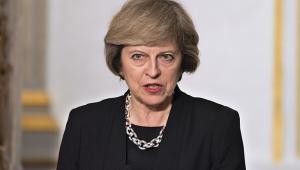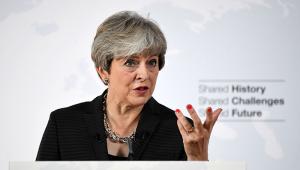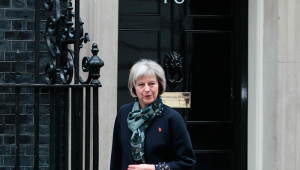The prime minister also announced the government would trigger the Article 50 process to leave the European Union in the first three months of 2017. The repeal legislation will be included in the next Queen’s Speech and is intended to be in place to remove the European Communities Act from the statute book following completion of the Brexit negotiations.
“Its effect will be clear,” May told the Conservative Party conference in Birmingham. “Our laws will be made not in Brussels but in Westminster. The judges interpreting those laws will sit not in Luxembourg but in courts in this country. The authority of EU law in Britain will end.”
Incorporating the existing body of EU law (the acquis) into UK statute would give more certainty to business and workers, she stated.
“When the Great Repeal Bill is given Royal Assent, Parliament will be free – subject to international agreements and treaties with other countries and the EU on matters such as trade – to amend, repeal and improve any law it chooses. But by converting the acquis into British law, we will give businesses and workers maximum certainty as we leave the European Union. The same rules and laws will apply to them after Brexit as they did before. Any changes in the law will have to be subject to full scrutiny and proper parliamentary debate.”
May also set out some details of her negotiating priorities for Britain in the Brexit talks. She said it was not a choice between a “soft Brexit” and “hard Brexit”, which represents a false dichotomy.
“The truth is that too many people are letting their thinking about our future relationship with the EU be defined by the way the relationship has worked in the past,” she stated. “That is understandable. We have been members of the EU for more than 40 years. We have just been through a renegotiation, during which we remained members of the EU and the government sought to keep us members of the EU.
“But what we are now talking about is very different. Whether people like it or not, the country voted to leave the EU. And that means we are going to leave the EU. We are going to be a fully-independent, sovereign country, a country that is no longer part of a political union with supranational institutions that can override national parliaments and courts.”
The government would seek to set out more details on trade terms “whenever possible and as quickly as possible” but would not be able to give a running commentary on the negotiations.
Also yesterday, the IPPR North think-tank called on government to work specifically on the Brexit priorities for the North of England. It called for the creation of a Northern Brexit Negotiating Committee to advise the government and give it extra negotiating firepower during negotiations with the EU.
For example, this should represent the views of key northern employers such as Nissan, as well as considering how to replace European Union funding for economic development.
IPPR North director Ed Cox said that the region’s £300bn economy faces real opportunities and challenges from Brexit, including trade for high tech products.
“Whether it’s top business leaders or trade union leaders, politicians, scientists and innovators or others, we want to hear who should join our all-star team for the North.
“Speaking with a single voice will put the North on par with Scotland and London during the negotiations – and help the government create a Britain that works ‘for everyone’.”





















